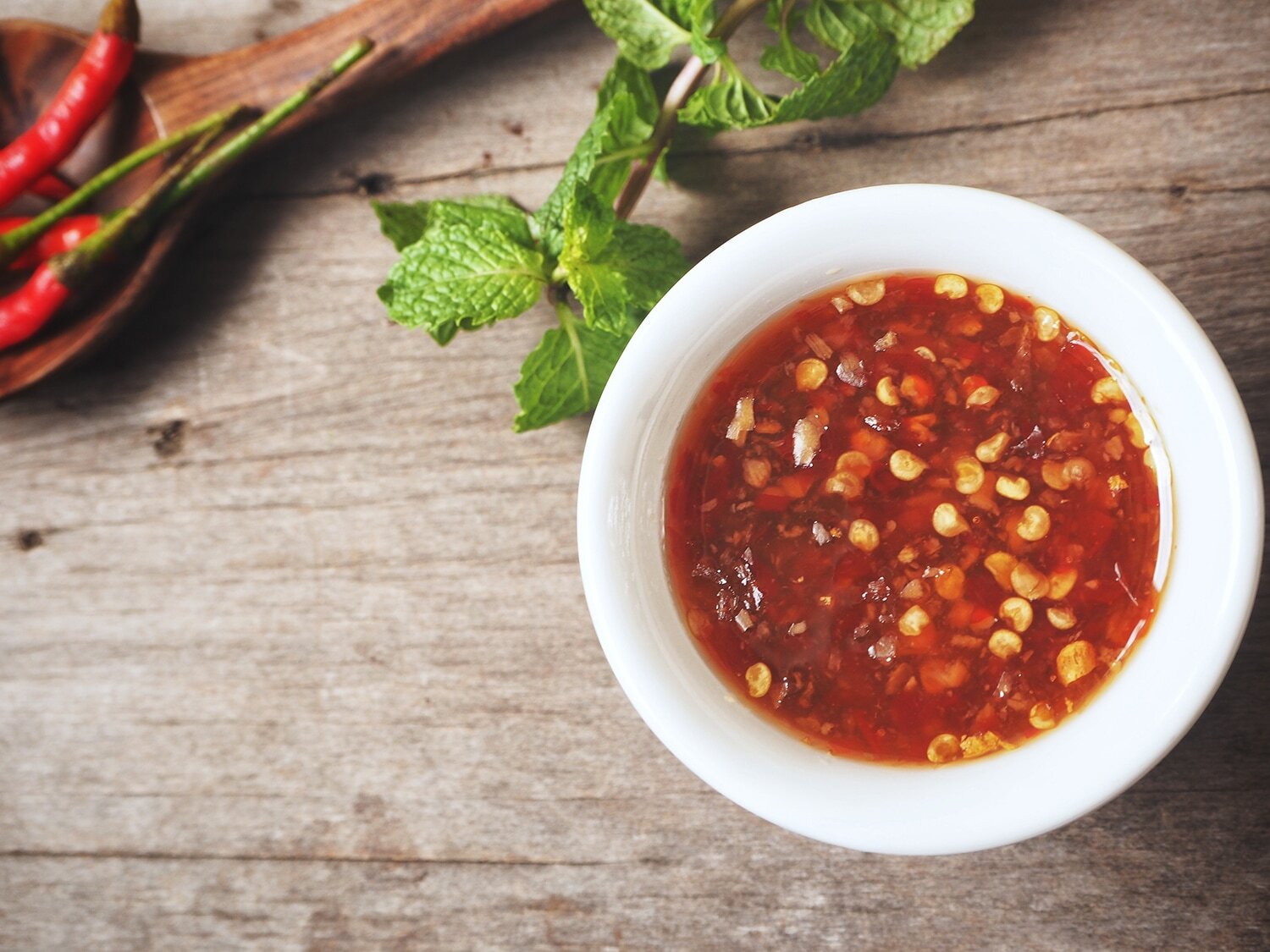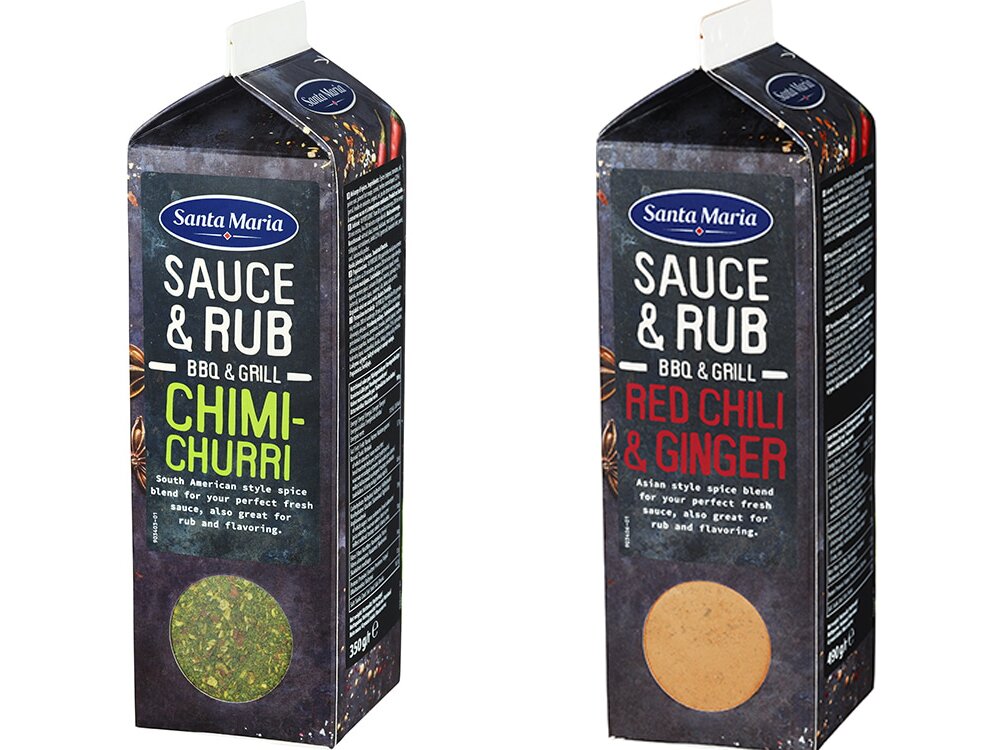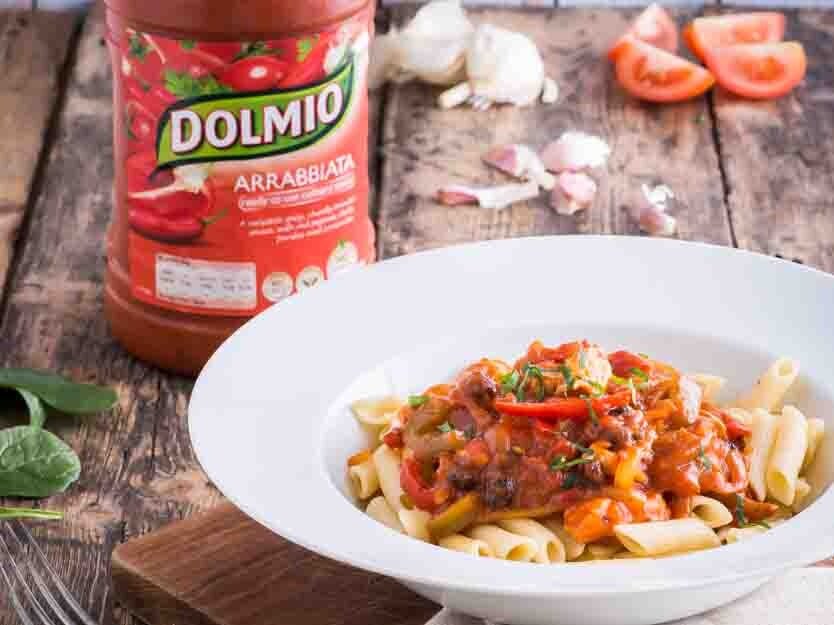A bit on the side: ready-made sauces to bring pizzazz to your menu and calm to your kitchen
Spice up your meals with the latest range of ready-made sauces, whether you fancy British comfort food or you have the hots for Asian cuisine. Anne Bruce reports.
Whether it’s classic hollandaise, peri-peri, chip shop curry or sweet chilli, diners like a bit of sauce, and so do chefs.
Stocks and sauces allow caterers to add excitement and flavour to their menus, showcasing food trends from around the world or traditional best of British favourites. Get it right and everyone’s happy.
But it’s not necessarily a quick win. Sustainability issues, the rise in plant-based eating, allergen removal and public health concerns about sugar and salt reduction need to be considered.
And as we navigate our way through the coronavirus crisis, cost-effectiveness is a key concern in the kitchen. So how do you make sure your stocks and sauces roster is on the money?
With the unravelling of the past year, diners are arguably finding enough stimulation just being out of the home, and that is partly reflected in flavour trends.

“British became the most popular cuisine during the first lockdown, as customers craved simplicity and comfort,” says Philadelphia Professional restaurants and pubs chef ambassador Jonny Pons. “For chefs planning menus for reopening, tapping into the trend for revived British classics is bound to prove popular.”
For chefs planning menus for reopening, tapping into the trend for revived British classics is bound to prove popular
Ali O’Brien, commercial director at the Flava People, has also noted that tried-and-tested favourites are coming to the fore: “Interestingly, traditional roast dinner gravy and honey glazes for hams and gammons are best-sellers.”
But research published in the Lumina Intelligence Menu & Food Trends Report 2020 shows that the appeal of global cuisines also soared during the pandemic as customers looked for variety in their dining options.
“Although Asian cuisine and flavours have dominated the street food revolution, we’re now seeing influences from all corners of the world, from the sweet and smoky flavours of American barbecue to spicy Jamaican jerk,” says Essential Cuisine senior business development chef Jon Harvey-Barnes.

In world cuisines, key growth areas for 2021 are east Asian cuisines, such as Japanese and Korean, as well as stocks and sauces used in slow cooking and barbecues, O’Brien suggests.
Chinese and Asian sauce supplier Lee Kum Kee tips specialist chilli sauces and salad dressings as trends for this year. Managing director Maria Chong argues that as people are being mindful of what they eat during and after lockdown, more creative salad dressings could be in demand.
Try combining plum sauce with LKK’s chiu chow chilli oil for a combination of fruity sweetness and aromatic spiciness; or hoisin with light soy sauce and orange juice, a mixture of savoury, spicy, fruity sweetness with the depth of umami.

Mexican wave
One cuisine chefs and operators can always bet on is Mexican, says Barnaby MacAdam, taste creator at Santa Maria Foodservice. In fact, plant-based Mexican food is on trend, he says, quoting social media insight from Delve Insights Veganuary Cuisines Research, which analysed 19,200 conversations on social media in January 2021.

“The rise of Mexitarian – plant-based Mexican food – is set to be the stand-out trend of 2021, overtaking Thai, Middle Eastern and Indian cuisine in this year’s Veganuary-related posts on social media,” he says.
The rise of the Mexitarian – plant-based Mexican food – is set to be the stand-out trend of 2021
With flavour trends something of a free-for-all in 2021, plant-based or flexitarian eating is a key food theme that chefs can pin down in sauces and stocks.
Ryan Holmes, culinary director at workplace caterer Eurest, says that plant-based sauces can be cost-effective and versatile and give chefs a new channel for their creativity.
“Roast, caramelised butternut squash processed into a sauce is great tossed with pasta with torn sage leaves, roast garlic and cracked black pepper. Alternatively, why not thin it with stock to pour over stuffed enchiladas? Not only does it add nutty sweetness, it is also fat-free and packed with vitamin A, fibre and potassium.”
Nutritional yeast flakes are another useful ingredient when making plant-based sauces. The flakes are a flavourful substitute for cheese and can be added to vegetable stocks, giving depth and umami, Holmes suggests.
Nothing to declare
In concocting sauces and stocks, the challenge for chefs is making sure that no diners are left behind because of dietary needs, whether they are avoiding animal products or have allergies. As the use of the top 14 food allergens needs to be notified to diners, many chefs choose to avoid potential problem areas by not using them at all in sauces and stocks.
Allergen awareness is high on the agenda in today’s industry, says Alex Hall, executive chef at Unilever Food Solutions. “Our new ‘No Allergens to Declare’ bouillon powders deliver a consistent quality and flavour and are ideal for kitchens that have previously needed to make separate allergen-free dishes for customers.”
Stelios Theocharous, managing director at Ceres, urges chefs to ensure that flavour does not suffer when they make their sauce choices. “Yes, reducing allergens is important, but so too is retaining flavour, texture and authenticity. Sometimes swapping out even one allergen, which might benefit one in 200 customers, could mean adding in lots of substitute ingredients, making the product worse for everyone.”
Yes, reducing allergens is important, but so too is retaining flavour, texture and authenticity
Ceres’ approach is to gradually remove allergens so as not to alienate customers, he says. “The most recent allergen we’ve removed is mustard, which was in our specially blended madras powder, so we’ve had to rebuild the madras powder. It’s not always easy to adapt an existing product.”

Similar arguments could be made on the question of sugar and salt reduction in sauces and stocks, as chefs weigh up a spectrum of dietary and health concerns and regulations in the choices they make.
It’s always a good idea to steer clear of unnecessary complications, suppliers agree. Having a versatile sauce or stock that can be used for all customers, or as a base for different recipes, keeps a kitchen running efficiently and helps keep costs on track at a time when chefs and caterers are looking closely at their margins.
Trash or treasure
Efficiency can also be achieved by using ingredients already on the menu in sauces and stocks, cutting down on food waste. Stocks and sauces can be made with offcuts and other surplus ingredients that might otherwise go to waste, further boosting profit margins and adding a selling point to the menu, suggests Rational corporate chef Tom Bentham.
“If stocks and sauces are prepared in-house in this way, they can be highlighted to customers on menus for their purity of ingredients, freshness and provenance, and command a premium price.”
Holmes says that at Eurest all byproducts which are normally perceived as waste are reused in other ways: “Coriander, basil and parsley stalks, for example, make a wonderful pesto, and brown onion skins and other vegetable trimmings are used to make stock.”
Indeed, as Theocharous suggests, sauces can add a lot of value without great expense: “Sauces are highly profitable and when it comes to selling them, operators have many options. Take fish and chips for example: they can be sold with a sauce on the side, which the customer pays extra for, or the cost of the sauce can be built into the price of the meal, for example: ‘fish, chips, tartare sauce and one hot side’ [so the customer feels they are getting extra].”
Flash in the pan
Labour in the kitchen is always a cost that needs to be considered when decisions are made on how to approach different menu items. Alison Smith, global product developer for Mars Foodservice, recommends ready-made options for a quick win. Ready-to-use stocks and sauces are making a strong comeback in the restaurant sphere, largely due to their dramatically improved quality in recent years, she says.

“Ready-made sauces allow caterers to create consistently delicious dishes, order after order. They bring many invaluable, practical benefits over home-made alternatives, particularly when using free-from or vegan sauces.”
Or as Hall at Unilever Food Solutions puts it: “All our sauces open up options within a kitchen, delivering consistent flavour when there simply is not time to make from scratch.”
The Knorr Professional ‘Ready to Use’ range, which includes Asian-inspired sauces such as katsu and pad Thai, allows chefs to reduce complexity in their operations, especially at a time where customer numbers are ever-changing, he says.
“The range taps into trends in world cuisine and helps chefs deliver the same great-tasting dish every time while paying close attention to the allergens,” he adds.

So while some chefs may choose to buy in a quick and guaranteed result in a bottle or packet, for others, playing the ‘three-ways with butternut squash’ game has more appeal. Just as with sauces and stocks themselves, there’s something for everyone.
Suppliers
Ceres www.worldofceres.com
Essential Cuisine www.essentialcuisine.com
Eurest www.eurest.co.uk
The Flava People www.theflavapeople.com
Knorr Professional www.unileverfoodsolutions.co.uk/chef-inspiration/knorr-professional.html
Lee Kum Kee www.lkkprofessional.com
Mars Foodservice www.aimiafoods.com
Philadelphia Professional www.philadelphiaprofessional.co.uk
Rational www.rational-online.com
Santa Maria Foodservice www.santamariaworld.com/uk/foodservice



















